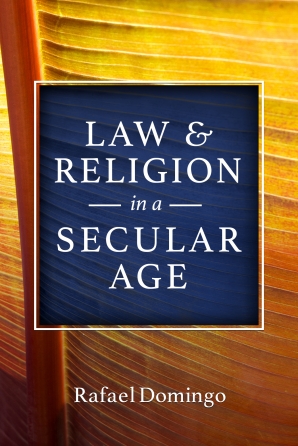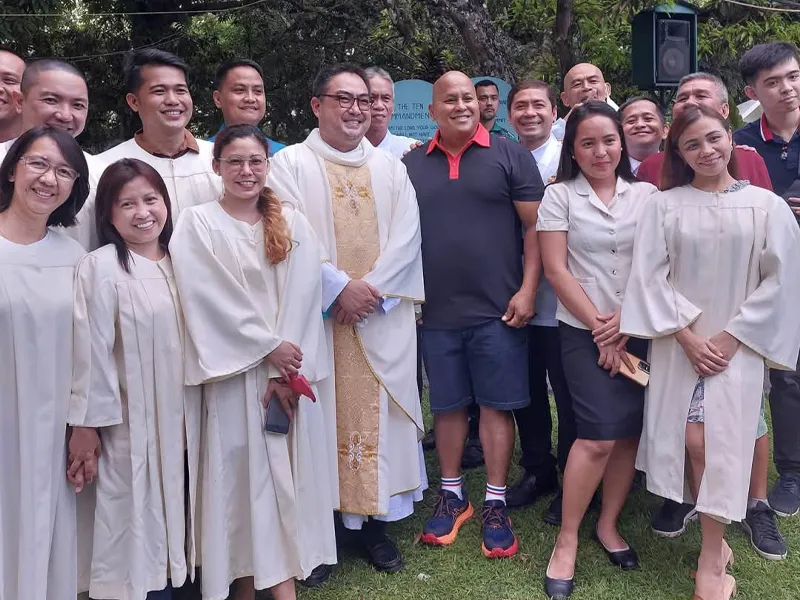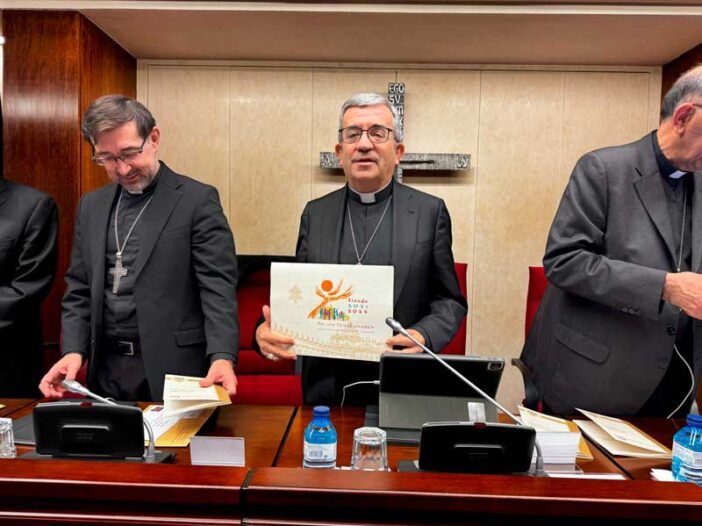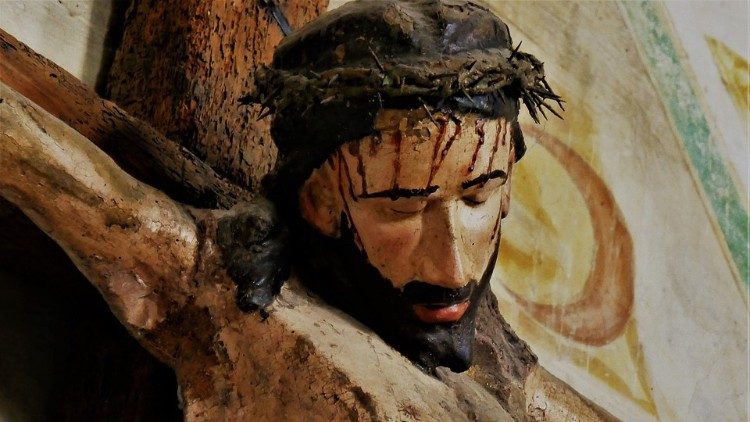Book Review: Rafael Domingo, Law and Religion in A Secular Age
by John Witte Jr

In some 35 books, 125 articles, and 250 op eds and interviews published over the past four decades, Spanish jurist and legal historian Rafael Domingo has carved out a unique place of leadership in the global law and religion field. He has worked hard to demonstrate the enduring wisdom of classical Roman law for states, churches, and cultures in the West and well beyond — pressing this case in a dozen major titles going back to his early career at the Universities of Cantabria and Navarra and most recently in his Roman Law: An Introduction. He has built strong new bridges between Catholics and Protestants, Europeans and Americans, civil lawyers and common lawyers, canonists and church leaders, and Spanish and English scholars. Those efforts are featured in a long run of books that he has written and edited — from his four-volume Juristas Universales, to his 80-volume Thomson Reuters “Global Law Collection,” and now to a new Spanish book series with Aranzadi “The Roots of Law” that views current law in historical, religious, and moral perspectives.
As a devout Catholic jurist with generous ecumenical aspirations, Domingo wants to move our increasingly fractured and fractious confessional worlds to a deeper spiritual ecumenism that re-embraces the Bible, tradition, and reason and directs the diverse Christian peoples of the world to be common agents and exemplars of love and charity, faith and order. Domingo also wants to move our increasingly nationalistic and balkanized legal worlds to a deeper global law that embraces the justice, peace, and liberty that all persons and peoples need, and directs each nation’s legal systems to address the common good of all humanity and all of nature. That broader ecumenical religious and global legal effort has demanded patient and persistent scholarship and advocacy across multiple projects, languages, confessions, and countries. Powerful manifestos of this effort include Domingo’s monographs: The New Global Law and God and the Secular Legal System.
From 2013 to 2023, I had the privilege of working directly with Professor Domingo during his tenure as Francisco de Vitoria Senior Fellow and Spruill Family Professor in our Center for the Study of Law and Religion at Emory University. We worked intensely together to build a multi-volume series of books on “Great Christian Jurists in World History,” for which he coedited several titles: Great Christian Jurists in Spanish History, Great Christian Jurists in French History, Law and the Christian Tradition in Italy, Law and Christianity in Latin America, and Law and Christianity in Poland. We also worked hard together to build a multi-volume series of “Introductions to Law and Christianity.” As part of this series, the two of us co-edited Christianity and Global Law as well as a capstone volume, The Oxford Handbook of Christianity and Law. And Rafael very kindly led the creation of a hefty and lovely Festschrift for me: Faith in Law, Law in Faith: Reflecting and Building on the Work of John Witte, Jr.
These close connections with Professor Domingo and his work might well have recused me from reviewing his latest volume, Law & Religion in a Secular Age. I certainly should not comment on the impressive last six chapters of this book — on the law and religion contributions of Alberico Gentili, Robert Schuman, Óscar Romero, John Paul II, Álvaro d’Ors (Domingo’s great mentor), and the undersigned. Those chapters are adapted from entries in our collaborative book series, and I was privileged to offer detailed comments on earlier drafts.
What I have not seen before – and what many law and religion scholars will likely find novel, too – are the first eight chapters of this book that set out what he calls “a multidimensional perspective on law.” Here, in 175 tightly written and closely reasoned pages, Domingo outlines an integrative legal theory that “seeks to restore the connection between spirituality and justice, religion and law, theology and jurisprudence, natural law and positive law … for pluralistic societies in a secular age” (p. ix). Readers will find more on these themes in Domingo’s complementary title Derecho y Trascendencia and his ongoing innovative work on the “spiritualization” of society and each of its core institutions and professions, not least law and the legal profession.
Chapters 1, 2, 7, and 8 offer “spiritual perspectives on law,” which Domingo counterposes to dominant modern theories of legal positivism, “defiant secularism,” and “religious marginalization,” if not exclusion from public life, political debate, and legal reasoning (ix, 33). For him, the realm of “spirituality” is the transcendent order that grounds and directs human beings and their institutions to a good life and good society. Spirituality transcends the separate “temporal” and “material” realms of positive law, organized religion, and codified morality, he argues. It is a higher realm of wisdom and goodness that permeates and coats our being and world, and helps edify and elevate each human being and each social sphere.
While every major civilization and tradition recognizes a transcendent spiritual realm rooted in God or something beyond the individual and material world, Christianity anchors spiritualization in the Trinitarian doctrine of the Holy Spirit. The Holy Spirit is the eternal mutual love between the Father and the Son. The singularity of the Holy Spirit is precisely that of being in communion and unity. The Holy Spirit is also a gift of both the Father and the Son. If the characteristic of the Son is being born (natus), the characteristic of the Holy Spirit is being given (datus). And if the Spirit of God is love, communion, and gift, becoming spiritual for a Christian means essentiality living in love, in communion, and as a gift from God for others (13-14).
This Christian spiritual trilogy of “love, communion, and gift” provides edification and exemplification for all social institutions, including notably the law. For law, the three transcendent goods of love, communion, and gift help guide and elevate the three corresponding “material” goods of “justice, agreement, and right” that are the heart of modern positive laws. “Justice” is the primary goal of modern secular legal systems. “Agreements” (charters, constitutions, covenants, and more) are the foundation of a just legal community and authorize the creation of further political agreements through legislation and their implementation and enforcement by the executive and judiciary. “Rights” and liberties, and their legal protection and vindication, are fundamental goods for modern secular societies, and help foster justice and facilitate and enforce public and private agreements (16-18).
The “spiritualization of law” involves affirming and elevating as apt each of these three dimensions of law, Domingo argues – offering “greater justice, more substantial agreements, and more robust protection of rights” (xiii). Justice and love are intertwined, and “the plentitude of justice,” expressed in forgiveness, equity, mercy, solidarity, charity, and fellowship, requires the higher dimensions of love. Agreement and communion are also intertwined, and a true meeting of the minds and a deep mutual devotion to the spirit of an agreement, even at personal sacrifice in service of the common good, reflects the higher teachings of communion. Rights are themselves divine gifts to human nature, which can be pursued not just out of self-interest but to induce others to discharge their duties of love toward their neighbors. The spiritualization of law also involves the gradual elevation of legal systems to a higher plane. Domingo offers some examples in the historical development of legal systems that learn — sometimes through bitter experience to the contrary — the goods and goals of limiting domination, reducing coercion, outlawing torture, rejecting the death penalty, building political unions, encouraging cooperation, promoting the welfare of the needy and vulnerable, and protecting the natural environment (18-33, 150-55).
Chapter 2 turns to metaphor theory to describe what Domingo calls the “body, soul, and spirit” of the law (34-55). Jurists since antiquity have talked separately about these three metaphors – think of Justinian’s Corpus Iuris Civilis, Montesquieu’s Spirit of the Law, or Hobbes’ “soul of the law.” But Domingo is interested in how these three metaphorical dimensions interact. He shows how Christians have used biblical anthropology to demonstrate the interdependence of the body, soul, and spirit of the law of God (39-44). But in making a wider appeal, he grounds his integrative argument in the reality that the human beings who create positive laws are themselves at once body, soul, and spirit, and they invariably reflect that image in their legal creations. Just as the human body is made up of many interacting systems (cardiovascular, digestive, muscular, and more), legal systems are made up of many interconnected systems (constitutional law, criminal law, contract law, procedural law, and more) that need to work together to function properly, with reason serving as the “life blood” of the corpus iuris. Just as the human soul provides “life, meaning, reason, consciousness, and power to the body, the legal soul provides life, meaning, and power to the law.” Just as the human spirit links human beings ultimately to God so the spirit of law ultimately links human law to divine law, whether taught by Scripture, tradition, reason, or conscience. The spirit, Domingo argues, is the source of freedom, value, meaning, and consciousness for both human beings and legal systems (45-46).
Here, too, is a provocative outline of a new kind of “trinitarian theology” of law, now based on the human image of “body, soul, and spirit” rather than the more familiar imago Dei teachings about the Triune God reflected in human “reason, will, and memory.” Domingo uses this metaphor to argue for the value of living constitutionalism (not treating it as a mere legal document), learning from other legal systems (because the spirit of the law extends beyond jurisdictions), restoring historical jurisprudence (focused on the national spirit, the Volksgeist), and reviving natural law theory (focused on the legal spirit), and similar efforts at reconciliation between rational/human law and suprarational/divine law, and more (45-54).
Chapters 7 and 8 expand on this last point, applying it to the “universal” or “global” legal systems of international law and Catholic canon law – two forms of positive law today that transcend national boundaries (138-73). Both international law and canon law, Domingo argues, are historically grounded and ultimately guided by a “transcendent,” “spiritually infused” or “sacred natural law.” That higher law emanates from God and the created order, and animates our natural inclinations and intuitions, reason and tradition, customs and conventions, spiritual discernment and religious inspiration. This “sacred natural law” sets out the legal fundamentals of justice, order, power, liberty, peace, procedure, solidarity, pluralism, subsidiarity, and more that every nation and people, church and legal community must ultimately embrace, elaborate, and enforce with their own distinct methods and procedures, accents and applications (141-55).
Human persons, as image bearers of God – and gifted with bodies, souls, and spirits, and with reason, will, and memory — are the ultimate fulcrum between these natural and spiritual, material and transcendent, realms, Domingo argues. Rational and conscientious human persons are the indispensable source for discerning and communicating the meaning and means of living out the contents and commandments of this sacred natural law. Human persons must have thus “priority” in all legal systems — from the global to the local. Their bodies, souls, and spirits must be protected. Their consciences and liberties must be respected. Their values and voices must be projected into legal deliberation and action. Their collective customs and cultures must be reflected in the global legal regimes that govern the world today. Giving “priority” to human persons, in all their multidimensional complexity, is ultimately the best way to link the “sacred natural law” to the temporal positive laws. It is the best way to transform international law from an “often self-interest-oriented international community of nation-states into a value-oriented global human community of image-of-God bearers” (154-157, 91-95 112-15). It is also the best way to move beyond the casuistic, “technical and reductionist legal concepts of personhood” that dominate modern codes of Catholic canon law and their jurisprudence, and “instead prioritize the centrality of every human person, created in the image of God and called to regeneration in the baptismal waters” (p. xvii; 171-73). Here is a strikingly different defense of natural law and human liberty than currently on offer in legal and theological circles, although Domingo adduces a long tradition of thinkers going back to antiquity to press his case.
Here also is a refreshing alternative to various theocratic, theonomist, neo-medieval integralist, or Christian nationalist theories that have emerged in scholarly and popular writings of late. In Chapters 3 to 5, Domingo argues strongly that modern secular societies must bracket God from their positive laws – out of respect for God and the supernational, however defined (56-95). For Domingo, respect for God requires a state and community to recognize an antecedent spiritual or transcendent source of law and rights that lies beyond their positive laws. A state may acknowledge that God or transcendent realm in ceremonies, symbols, and political iconography that accord with local beliefs. It may acknowledge that rights and duties, and moral principles and practices of life are rooted in what the American founders named “the law of nature and nature’s God.” But beyond that, the state cannot and should not go. God is a “metalegal concept,” Domingo insists, above the formulations of any state or any political legal order (63-79). The state rules secular matters, but it has no jurisdiction over religion. That is left to the conscience and soul of each individual to engage, whether alone or in (religious) community. The “wall of separation” metaphor underscores that “God is neither a member of the political community nor the religious community. God is outside both, but illuminates both” (57, 89-91).
States must thus not establish religion by secular law – whether Christian, Jewish, Muslim, Hindu, Taoist, Confucian, or otherwise. The state has no business dictating, defining, or favoring any particular religious doctrine, liturgy, text, or canon. It has no business involving itself in the polity, property, or personnel of any religious body. It has no business coercing its subjects to practice or fund religion, or discriminating in favor of one religion and against another. For the state to reduce God and religion to a simple political category or a legal command is ultimately a form of political idolatry, even blasphemy, Domingo argues. Traditional religious approaches to law and politics, while they may have been popular in the second millennium, cannot be sustained in our modern secular age (73-88, 100-111).
States also must not establish a secularist ideology – whether liberalism, socialism, communism, or fascism – that stands in the place of a traditional religion and commands comparable devotion and allegiance in violation of the conscience of the individual, the independence of religious communities, and the ultimate sovereignty of a transcendent God (76-87). Stalinist Russia, Maoist China, Nazi Germany, Mussolini’s Italy, Pol Pot’s Cambodia: these are only a few of the many examples of modern totalitarian states that have arrogated to themselves this kind of transcendent power. Equally unwelcome are current aggressive policies of laïcité in France, Belgium, and elsewhere in Europe, or policies of mandatory secularization in modern-day Canada or Turkey and in earlier American First Amendment jurisprudence. These state policies, too, ultimately fail to respect God, religion, and conscience. They sometimes catechize versions of “liberty, equality, and fraternity” that can run roughshod over religious ideas of responsibility, difference, and community. They sometimes teach nationalism, patriotism, and cultural allegiance that make idols of a state, people, and ways of life. They sometimes protect, promote, and prescribe fundamental moral and ethical ideas about families, schools, charities and other “mixed institutions” with religious and secular dimensions that upend millennia-long teachings of religious communities. They sometimes treat religion as irrational, dangerous, and dispensable (85-88, 100-05).
Domingo works hard in these chapters — and in his longer book on God and the Secular Legal System — to counter these new “secularist approaches” to law and politics as much as the old “religious approaches.” He promotes what he calls “a secular theistic approach” that separates religion and state, that accommodates all sincere claims of conscience, that protects the peaceable pursuit of the “suprarational,” and that defers to the inner workings of peaceable religious organizations that remain true to their callings. His approach calls each community to respect God, but not to make God an object or end of state power. It calls each community to respect the autonomy of peaceable religious communities, but does not give any religious community the secular power to coerce its subjects or to control the state. It calls political and religious communities alike to accommodate the conscience of each individual, but to avoid collapsing claims of conscience into simple claims of personal preference. And this approach calls all communities to recognize that fundamental questions of morality – of war and peace, life and death, marriage and family, nature and bioethics, and the like – must draw on states, religions, and private consciences together for reflection and resolution, and stop pretending that these questions can be treated only dogmatically, only pragmatically, or only with value-neutrality.
Chapter 5 extends this latter argument to criticize the influential theories of Ronald Dworkin and Brain Leiter. Dworkin belittles the idea of God and transcendence, making all religious claims merely variation of personal ethics and choices. Leiter belittles the idea of religious freedom, treating religion as too irrational, dangerous, and self-serving for secular law to protect or respect it. Domingo takes apart their arguments, concluding that “the idea of God is central to the understanding of religious freedom as a right deserving of special treatment and different from the rights to freedom of speech, press, association, and more” (p. 98). Religious freedom is the first right because it protects the most profound beliefs of each individual and the transcendent dimension (especially God) of human life, which is essential to human dignity.
Domingo’s argument depends on a complex differentiation of different spheres of life and power. It presupposes the ability of secular reason and secular law to operate with religion as a friendly ally, but neither as object or enemy. It presupposes the ability of religion to cooperate with the state, but to remain confined to its own principal sphere and respect the conscientious claims even of its own members. And it presupposes distinctions between religion and law, religion and morality, conscience and belief, secularity and secularism, the spiritual and temporal orders, and more – all of which boundaries have been and are fiercely contested.
These are all delicate balances to strike, but Professor Domingo brings great learning to the task, drawing on politics, history, jurisprudence, political theory, comparative law, European human rights law, and American constitutional law to drive home his points. He puts sundry great scholars in the dock for close examination – Hans Kelsen, Gustav Radbruch, Robert Alexy, H.L.A. Hart, Lon Fuller, Jeremy Waldron, Harold Berman, John Finnis, John Rawls, Jürgen Habermas, Charles Taylor, Joseph Raz, Alasdair McIntyre, and scores of others, including Popes John XXIII, John Paul II, and Benedict XVI – in working out and defending his position.
What emerges in these pages is the opening sketch of a rich and innovative legal theory addressed to the most fundamental questions of law, religion, and the state that are challenging persons and peoples throughout the world. Readers will do well to dig into Professor Domingo’s earlier writings on law and religion, and watch for the many sequels that this prolific and original scholar will no doubt publish to fill out his provocative new narrative of law and religion.
John Witte, Jr. is Woodruff University Professor, McDonald Distinguished Professor, and Faculty Director of the Center for the Study of Law and Religion at Emory University. He has published 325 articles and 45 books.
Recommended Citation
Witte Jr, John. “Book Review of Law and Religion in a Secular Age.” Canopy Forum, October 4, 2024.

Related

“The priest finds his reason for being in the Eucharist”
Fundación CARF
01 April, 2025
5 min

Family Valued: An international appeal for the family
Exaudi Staff
01 April, 2025
2 min

Bishop Luis Argüello Addresses the Challenges of the Church in Spain
Exaudi Staff
01 April, 2025
2 min

THE WAY OF THE CROSS: Accompanying Jesus on the way to the Cross
Luis Herrera Campo
31 March, 2025
5 min
 (EN)
(EN)
 (ES)
(ES)
 (IT)
(IT)

